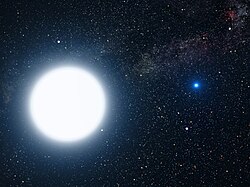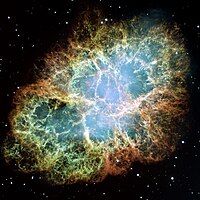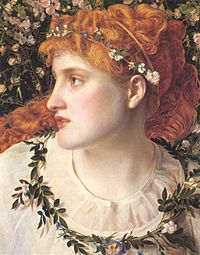As I continue to look at Myths and Archetypes in Shakespeare, another interesting myth, or underlying belief, in Shakespeare's time is that of witches. This is especially evident in plays like Macbeth. As well as the historical context of this novel as King James was obsessed with demonology and witches, witchcraft was a very common belief during the Elizabethan Era. Some estimates say that 16,000 women were killed on charges of witchcraft.
Thursday, March 31, 2011
Tuesday, March 29, 2011
Myth: Fairies in a Mid-Summer Night Dream
I believe that fairies would be included under Myths, in Mythological and Archetypal Criticisms. I was trying to study up on how Shakespeare and his audience would have believed in fairies. In this 'modern age' we don't believe in fairies and magic that are displayed in this play, but back then people were much more superstitious.
The main fairies in A Mid-Summer Night's Dream are: Titania, Oberon, and Puck(!). I found a really interesting article that talked about the fairies in Shakespeare. I wasn't quite sure what to think of them just reading through the play. This article, Shakespeare's Fairies: The Triumph of Dramatic Art edited by William J. Rolfe, views the fairies as children, "They are not diminutive human beings with superhuman powers, though in some respects they are like human children. Like young children before they have learned the distinction between right and wrong, they have no moral sense, and little or no comprehension of such sense in the mortals with whom they are associated. Like children, they live in the present, and are quite incapable of reflection."
The main fairies in A Mid-Summer Night's Dream are: Titania, Oberon, and Puck(!). I found a really interesting article that talked about the fairies in Shakespeare. I wasn't quite sure what to think of them just reading through the play. This article, Shakespeare's Fairies: The Triumph of Dramatic Art edited by William J. Rolfe, views the fairies as children, "They are not diminutive human beings with superhuman powers, though in some respects they are like human children. Like young children before they have learned the distinction between right and wrong, they have no moral sense, and little or no comprehension of such sense in the mortals with whom they are associated. Like children, they live in the present, and are quite incapable of reflection."
Sunday, March 27, 2011
Archetype: Hero
As I study Shakespeare through Myth and Archetypal Criticism I decided to take a closer look at the Hero Archetype. Joseph Campbell talks a lot about this Archetype in his book, "The Hero with a Thousand Faces." The Hero is a 'stereotype' we all can associate with, we all have a definition of what a hero is or does (be it Mr. Incredible, Batman, Sir Galahad, or Jimmer). A hero is usually the main character or a story or a plot line, is faced with a problem or a complication, and then must overcome that complication.
Shakespeare uses this Archetype in some very interesting ways. Instead of simply giving us a 'hero' figure, he gives us a main character who could be a hero and then puts him under pressure - but these characters don't always succeed. It is left to us then to decide if these characters are actual heroes or not. Since we've all read Hamlet, it is easy to see what I mean. He is a prince, he has a complication - but he doesn't face it nobly or heroically. This leads us to ask the question or our Heroic Archetype, "what really makes a hero?"
As Joseph Campbell's book sates, "A hero ventures forth from the world of common day into a region of supernatural wonder: fabulous forces are there encountered and a decisive victory is won" (23). Thus Shakespeare questions our very view of what being a hero really is. As strange as it sounds, I actually really like this because it makes me look closer into the story line and character, making my own judgments and actually taking something influential away from the text.
Shakespeare uses this Archetype in some very interesting ways. Instead of simply giving us a 'hero' figure, he gives us a main character who could be a hero and then puts him under pressure - but these characters don't always succeed. It is left to us then to decide if these characters are actual heroes or not. Since we've all read Hamlet, it is easy to see what I mean. He is a prince, he has a complication - but he doesn't face it nobly or heroically. This leads us to ask the question or our Heroic Archetype, "what really makes a hero?"
As Joseph Campbell's book sates, "A hero ventures forth from the world of common day into a region of supernatural wonder: fabulous forces are there encountered and a decisive victory is won" (23). Thus Shakespeare questions our very view of what being a hero really is. As strange as it sounds, I actually really like this because it makes me look closer into the story line and character, making my own judgments and actually taking something influential away from the text.
Bibliography
Joseph Campbell. The Hero with a Thousand Faces. Princeton: Princeton University Press, 1968. Print.
Thursday, March 24, 2011
Myth: Stars, Planets and Constellations
In my last post on Mythological and Archetypal Criticism I focused on the role stars plays in Shakespeare's works. Both Joanna Barker and Brooke Randell commented that it would be interesting for me to look into this myth deeper and make another post, so I decided to study stars and constellations a little more.
I found an Article on this very subject that I really liked entitled "Shakespeare and Astrology." It discusses stars and planets in Shakespeare and how they worked in that time period.
I found an Article on this very subject that I really liked entitled "Shakespeare and Astrology." It discusses stars and planets in Shakespeare and how they worked in that time period.
Tuesday, March 22, 2011
Myth: Stars
As I am studying Mythic and Archetypal Criticism in Shakespeare's plays I thought I would look up some history on stars and astrology. In many of his plays Shakespeare's characters believe their fate is laid in part by the stars, or the month they were born. This is somewhat superstition, but it also plays into the idea of fate and how much control people really do have over their lives. In Shakespeare's time it really was a question. But, as he states himself, "It is not in the stars to hold our destiny but in ourselves."
The role stars play may seem crazy, but think about it. One of Shakespeare's most famous quotes is of Romeo and Juliet being, "star-crossed lovers." this means they didn't have a choice, fate meant them to be together and they couldn't help themselves. Throughout the play this struggle against the uncontrollable is shown in quotes like, "Some consequence yet hanging in the stars" (1:4),or "is it even so? then I defy you, stars!" (5:1). Juliet is even compared to a star, "Juliet is the sun" (2:2).
One of the best plays to look at to see this struggle between being in control of your destiny or not is King Lear. Edmud states this problem eloquently, "this is the excellent foppery of the world, that, when we are sick in fortune, -- often the surfeit of our own behavior, -- we make guilty of our disasters the sun, the moon, and the stars: as if we were villains by necessity." Many times it was easier for people to believe they didn't have control of their own destinies.
The tragedy of King Lear is all about choices and fate. In the end there is still a continuing argument between destiny and choice.
The role stars play may seem crazy, but think about it. One of Shakespeare's most famous quotes is of Romeo and Juliet being, "star-crossed lovers." this means they didn't have a choice, fate meant them to be together and they couldn't help themselves. Throughout the play this struggle against the uncontrollable is shown in quotes like, "Some consequence yet hanging in the stars" (1:4),or "is it even so? then I defy you, stars!" (5:1). Juliet is even compared to a star, "Juliet is the sun" (2:2).
One of the best plays to look at to see this struggle between being in control of your destiny or not is King Lear. Edmud states this problem eloquently, "this is the excellent foppery of the world, that, when we are sick in fortune, -- often the surfeit of our own behavior, -- we make guilty of our disasters the sun, the moon, and the stars: as if we were villains by necessity." Many times it was easier for people to believe they didn't have control of their own destinies.
The tragedy of King Lear is all about choices and fate. In the end there is still a continuing argument between destiny and choice.
Sunday, March 20, 2011
Archetypes in Shakespeare
Big words like "Archetype" and "Shakespeare" are scary - especially when you have no idea what an Archetype is. So, first things first.
What is an Archetype?
An archetype is like a code that we use to help us understand things - it helps us lean what to expect: what is normal and what isn't. One of the most common archetypes is the prince and the princess - not only fairy tales, but lots of other stories as well, end with the prince marrying the princess. Another common archetype is the prince saving the damsal in distress - why does he kill the dragon and kiss the girl? Because everyone expects him to. Killing the dragon is right, saving the girl is right.
However, archetypes go a lot deeper than the surface value you may see at first. People like to play with archetypes, they like to follow them sometimes, and other times they like to break the "rules" and do something unexpected. (Whether you like the movie "Enchanted" or not, it is a good example of breaking rules. Does it break any real rules? No . . . and yes. It breaks the rule that the prince marries the damsel in distress.)
So we've answered the first question. The second question could be who is Shakespeare - but hopefully you already know. He is a famous playwright.
Archetypes in Shakespeare:
- Black and White. Black is evil.
- Light and Dark. Dark is bad, light is good.
- Stars and Constellations. The universe exerts its will over others wills. A prime example of this is Romeo and Juliet as star-crossed lovers.
- Magic and Bewitching. Women have been portrayed as witches or other creatures with magical powers for centuries (think of sirens or mermaids).
- The Hero. Whether you think it or not, archetypes teach you to look for a hero. There is always one person set up to be the protagonist, the hero.
- Good and Bad.

This is a good start, although by no means a comprehensive list of the archetypes Shakespeare uses in his plays.
There are many different Archetypes that we don't think about, or even seem blatantly obvious. I hope this helps explain how archetypes work in Shakespeare's plays.
Thursday, March 17, 2011
Romeo and Juliet: the story
As I was trying to think of ways to engage Shakespeare creatively I decided to write a chapter on a section of play, kind of flesh it out. I picked Romeo and Juliet as the play I wanted to write about - I know everybody makes fun of Romeo and Juliet because they're so young, but I wanted to give them some real feelings and emotions like I like to imagine they shared. I set it right after Romeo killed Tybalt and is being forced to flee for his own life. It's kind of long, but I hope you like it. I've modernized it a little bit, as there are quotes from Keats (who wasn't alive at the time) and references to chocolate, but I think it gets the emotions I was trying to convey across. – sorry, I know it’s kind of cheesy.
Tuesday, March 15, 2011
Archetype: Light and Dark
Continuing with my theme of looking at myths and archetypes in Shakespeare's works. I looked at the archetype of darkness a few posts ago. Jennifer Prusse wrote a comment on my blog guiding me to a blog Hanna Pulley had done on the same idea of light and dark. She talked about Rosaline verses Juliet, and how Shakespeare cleverly compares Rosaline to darkness, and Juliet to light - like "Juliet is the sun."
I thought the use of archetype specifically as applied to a character was interesting. I looked up an article at the BYU library about the archetype compared to a person. I found one by Anson C Flyer called, "Self-Unification: An Archetypal Analysis of Prospero in Shakespeare's The Tempest." This article talks about light and dark inside of Prospero, melding in nicely with the arcetype of light and dark as well as another post I did on the shadow archetype as Prospero battles with himself to become a 'unified' person. Prospero struggles to find a balance between animus and anima, finding this balance in the old sage, or wise old man, figure in the play.
I thought this was an interesting idea and I hope others do as well. The shadow archetype as well as archetypes of light and dark fascinate me and I'm really enjoying taking a closer look into them.
I thought the use of archetype specifically as applied to a character was interesting. I looked up an article at the BYU library about the archetype compared to a person. I found one by Anson C Flyer called, "Self-Unification: An Archetypal Analysis of Prospero in Shakespeare's The Tempest." This article talks about light and dark inside of Prospero, melding in nicely with the arcetype of light and dark as well as another post I did on the shadow archetype as Prospero battles with himself to become a 'unified' person. Prospero struggles to find a balance between animus and anima, finding this balance in the old sage, or wise old man, figure in the play.
I thought this was an interesting idea and I hope others do as well. The shadow archetype as well as archetypes of light and dark fascinate me and I'm really enjoying taking a closer look into them.
Sunday, March 13, 2011
Archetypes: Shadow
As I've been looking at myths and archetypes in Shakespeare's works recently, I thought that an interesting Archetype to study more thoroughly is an idea of Archetypal Critic, Carl Jung. Jung was a Swiss psychiatrist, one of his main Archetypes, which he studied extensively, was that of 'the shadow.' Jung believed that each person had a shadow inside of themselves. The shadow was that suppressed, artistic, almost radical part of people. He believed that if the shadow was ignored, the person repressing it would only be 'half of a person.' I did a post earlier in the semester on the shadow archetype in Richard III, examining how Richard was destroyed by his shadow because he let it overrun him. Instead of ruling his ambition he gave into it and became a very cruel and almost lost character in Shakespeare's tragedy.
I was looking up quotes in Shakespeare I found one that really intrigued me in Hamlet 2:2.
Thursday, March 10, 2011
Hub Post: Mythological and Archetypal Criticism
I've been looking at Shakespeare's plays through Mythological Criticism and Archetypal Criticism, which I explained in one of my earlier posts. Shakespeare's plays have some very interesting underlying stories and beliefs.
 Some major myths are:
Some major myths are:
There are also some very interesting archetypes which Shakespeare uses. One example would be his connection of 'black' to bad in his plays, contrasting good and evil.
I'm going to be looking at different conventions Shakespeare uses in Myths and Archetypes. Many times Myths in Shakespeare are not beliefs we share with Shakespeare's characters, such as belief in Apollo. Frequently Archetypes are harder to notice, as two things seem logically connected, but are actually only connected in our minds. I also want to look into different criticisms such, as Carl Jung and his shadow archetype.
Through Myths and Archetypes we are able to find a richer deeper world inside of Shakespeare's plays, realizing social constructions and beliefs that help us realize the world we have created around ourselves. As well as using many of these constructions, Shakespeare also contributes to them, including ideas such as 'star-crossed lovers.'
 Some major myths are:
Some major myths are:There are also some very interesting archetypes which Shakespeare uses. One example would be his connection of 'black' to bad in his plays, contrasting good and evil.
I'm going to be looking at different conventions Shakespeare uses in Myths and Archetypes. Many times Myths in Shakespeare are not beliefs we share with Shakespeare's characters, such as belief in Apollo. Frequently Archetypes are harder to notice, as two things seem logically connected, but are actually only connected in our minds. I also want to look into different criticisms such, as Carl Jung and his shadow archetype.
Through Myths and Archetypes we are able to find a richer deeper world inside of Shakespeare's plays, realizing social constructions and beliefs that help us realize the world we have created around ourselves. As well as using many of these constructions, Shakespeare also contributes to them, including ideas such as 'star-crossed lovers.'
Tuesday, March 8, 2011
Archetype of Blackness
For my blog post today I decided to do a close read of a play, looking for specific archetypes in that play. I've decided to look at Macbeth. One association we make almost sub-consciously is that black = evil. This is a convention, or an archetype that Shakespeare uses in his play Macbeth.
A prime quote from Macbeth that shows this is in Act 1 Scene 4:
"Stars, hide your fires; let not light see my black and deep desires: the eye wink at the hand; yet let that be, which the eye fears, when it is done, to see" (emphasis added).
A prime quote from Macbeth that shows this is in Act 1 Scene 4:
"Stars, hide your fires; let not light see my black and deep desires: the eye wink at the hand; yet let that be, which the eye fears, when it is done, to see" (emphasis added).
Sunday, March 6, 2011
Fortune's Wheel
Looking into mythological criticism. Another 'myth' I have found very common in Shakespeare's plays (to go along with the fate in my previous blog) is that of Fortune, or the Wheel of Fortune. The Wheel of Fortune is associated with the idea of Fate. The goddess Fortuna spins this wheel to bring some people good luck and others bad randomly.
The Wheel of Fortune is very much another way for people to blame what is happening to them on something besides themselves. There is nothing that can be done about what Fortune's wheel sends to its recipients. In Shakespeare's plays Fortune is personified as an actual person or player, who 'puppeteers' the characters under her control.
An example would be in Henry V 3:6, "cruel fate, and giddy Fortune's furious fickle wheel, that goddess blind,that stands upon the rolling restless stone--"
King Lear also exemplifies this when Kent speaks of fortune in Act 2 Scene 2, "Fortune, good night, smile once more; turn they wheel!"
The Wheel of Fortune is very much another way for people to blame what is happening to them on something besides themselves. There is nothing that can be done about what Fortune's wheel sends to its recipients. In Shakespeare's plays Fortune is personified as an actual person or player, who 'puppeteers' the characters under her control.
An example would be in Henry V 3:6, "cruel fate, and giddy Fortune's furious fickle wheel, that goddess blind,that stands upon the rolling restless stone--"
King Lear also exemplifies this when Kent speaks of fortune in Act 2 Scene 2, "Fortune, good night, smile once more; turn they wheel!"
Thursday, March 3, 2011
Fate
As I'm trying to view Shakespeare from a Mythological viewpoint I was trying to think of myths that work throughout Shakespeare's works. One of these myths is fate. Just to give everybody an idea of how prevalent the idea of fate is, here are some quotes from different plays about fate. These are by no means all of the examples, but this is a long list. (don't read them all if you don't want to, I just thought these were some good examples showing how fate was viewed.)
Tuesday, March 1, 2011
Apollo
Apollo is one of the deep interwoven 'myths' that all the characters in The Winter's Tale believe in. The god's and fate are a large part of the accepted world around these characters, as well as even Shakespeare. There are many, many references to fate and the gods in Shakespeare's plays.
It was believed that people couldn't always control their lives, fate had a handle on them and no matter what they did, fate would win the fight. Examples of this would be Romeo and Juliet as they are 'fated' to fall in love - star crossed lovers. Or in King Lear when Kent bemoans his unavoidable 'fate.'
In The Winter's Tale the gods play a very active roll, as Hermione calls on Apollo to be her judge. It seems very natural in the play, but if anyone tried that in today's courts they wouldn't get anything except maybe called crazy. Hermione boldly cries, "Apollo be my judge" and is even seconded in this motion. Leontes also eventually admits that he has been rejecting the gods will. "Apollo's angry," he morns after his son has died suddenly.
Lastly, the play itself supports this belief in the gods. Hermione is innocent, and so when the Apollo (through the oracle) declare this, his existence as an all powerful being is supported. When Leontes son dies suddenly, just as prophesied by the oracle, this also supports the idea that the gods are an unstoppable force in the world of The Winter's Tale.
It was believed that people couldn't always control their lives, fate had a handle on them and no matter what they did, fate would win the fight. Examples of this would be Romeo and Juliet as they are 'fated' to fall in love - star crossed lovers. Or in King Lear when Kent bemoans his unavoidable 'fate.'
In The Winter's Tale the gods play a very active roll, as Hermione calls on Apollo to be her judge. It seems very natural in the play, but if anyone tried that in today's courts they wouldn't get anything except maybe called crazy. Hermione boldly cries, "Apollo be my judge" and is even seconded in this motion. Leontes also eventually admits that he has been rejecting the gods will. "Apollo's angry," he morns after his son has died suddenly.
Lastly, the play itself supports this belief in the gods. Hermione is innocent, and so when the Apollo (through the oracle) declare this, his existence as an all powerful being is supported. When Leontes son dies suddenly, just as prophesied by the oracle, this also supports the idea that the gods are an unstoppable force in the world of The Winter's Tale.
Subscribe to:
Posts (Atom)













